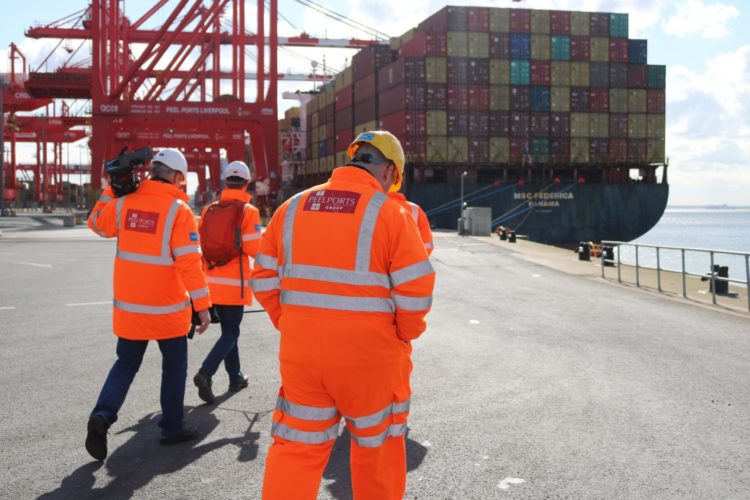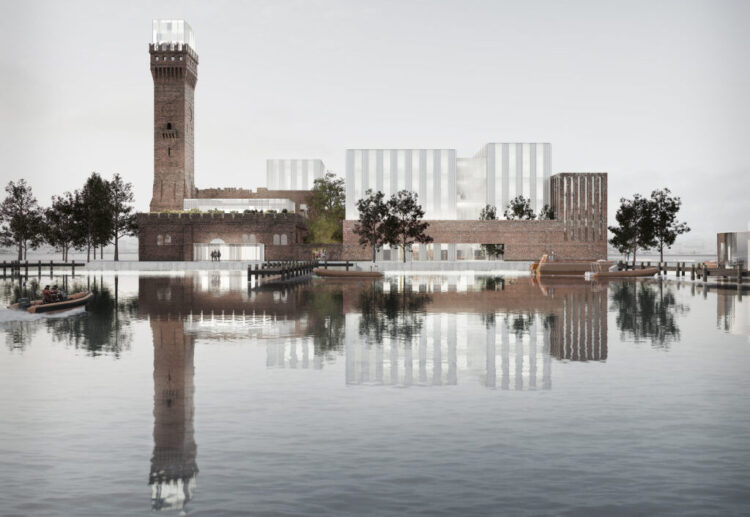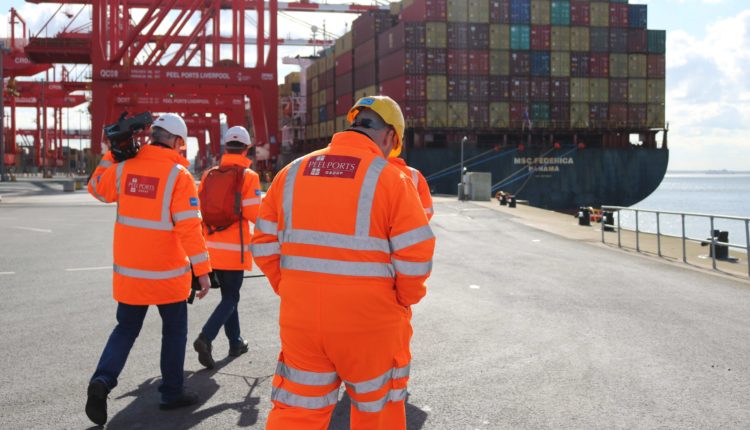‘Make port workers a priority for COVID vaccines’ says ports chief
CEO of the British Ports Association, Richard Ballantyne, said the UK’s ports played a critical role in keeping the UK supplied and its workers should be a high priority for vaccines. Tony McDonough reports

Workers at locations such as the Port of Liverpool should be high on the priority list when it comes to the COVID-19 vaccine, a UK maritime business leader has said.
Richard Ballantyne, chief executive of the British Ports Association, said the UK’s ports played a critical role in keeping the UK supplied with vital goods such as food and medicines and therefore port workers needed to be treated as essential workers.
He explained: “In the short term, keeping the industry resilient and ports open could mean getting essential workers at ports up the queue just behind health workers, the clinically vulnerable and the elderly, in terms of the roll-out of the COVID-19 vaccine.”
The BPA represents 86% of UK port freight activities around the UK and Mr Ballantyne said they will play a key role in the country’s recovery from the pandemic and will be at the heart of the new trading relationship with the EU.
He added that by the end of the year, ports might well be looking at a different policy agenda – a sustainable growth agenda. Mr Ballantyne said: “Many ports are still dealing with the impacts of coronavirus, in terms of day-to-day port operations and also a revised business environment.
“The potential for further restrictions and national lockdowns are daunting indeed. However, despite the obvious changes for those operators handling EU freight, 2021 could see a bounce back from the various impacts that affected the UK and global economy last year.
“Moving forward, ports can definitely be part of the solution as the country recovers. The Government has been clear about aspirations for it’s ‘levelling up’ agenda which will include a Freeports strategy but we expect to see another stimulus as well.

“Freeports is just one tool which will only target a limited number of particular locations. We will be encouraging policymakers to look at other mechanisms which will benefit all regions in respect to infrastructure and the regulatory environment.”
At the Port of Liverpool, Peel Ports is already investing in its growth agenda. By 2025 it is aiming to see a fifth of the container traffic arriving at UK ports unloaded on the Mersey – driving its share of the container market from 15% to 20%.
In 2016, the company opened the £400m Liverpool2 deep water container terminal, which is capable of handling 95% of the world’s biggest container ships. It is now investing another £140m to install 10 new cranes at the facility, creating 150 new jobs.
Peel’s commitment to the port is already paying dividends. In December, shipping giants Maersk and MSC revealed they were switching the UK call of its TA2 transatlantic container route from Felixstowe to Liverpool. This follows a decision by the companies to switch their TA4 transatlantic route from the southern port to the Mersey in 2018.
The prospect of new post-Brexit free trade agreements, particularly with the US, offers huge potential for what is the UK’s main western-facing port.
Prior to the pandemic, early last year the BPA was expecting sustainability and the energy transition to play a pivotal role across the UK ports sector. However, the impacts of COVID-19 drew the focus of the Government and industry’s attention elsewhere.
A much mooted green recovery is now an attractive proposition for politicians but what they actually might mean for ports is still open for some debate. Mr Ballantyne added:
“From air quality to their environmental footprint, ports are now looking into what they do to support the Government’s long term net zero targets.
“Indeed, changes to UK energy use and a move towards renewable energy generation is definitely something the sector is aligned to and supporting. We are excited to be recruiting a new sustainability advisor to join the BPA’s existing team to help navigate the environment and energy transition agenda.
That agenda also chimes here in Merseyside. Industry body Mersey Maritime is pushing ahead with its £23m Maritime Knowledge Hub(MKH) in Wirral’s docklands. And decarbonisation and sustainability will be at the heart of its agenda.

First announced at London Shipping Week six years ago, the MKH project will provide a national base for marine engineering research, development and decarbonisation as well as skills training and business accelerator space. It will create 4,000 jobs in its first five years.
Included in the sustainability work of the BPA will be a renewed focus on modal shift such as increased rail fright opportunities for certain ports but also, particularly, coastal shipping, which it says has been neglected as a policy area by the Government over the last 10 years.
Mr Ballantyne also talked up what Brexit might mean in terms of the wider regulatory agenda. He added: “Brexit needs to be much more than the new bureaucratic border controls on much of our trade that have taken up so much attention in the last four years. The UK ports and maritime sector are of course keen to see some tangible benefits but this could mean swift action from the government.
“The new regulatory regime means that the UK can now design a policy framework that better enables ports of all types to flourish and grow. This is not about ripping up environmental rules or safety standards, but is about looking for ways to create a more responsive framework that enables ports to be agile in attracting new investment and to grow and support jobs and local communities.”

